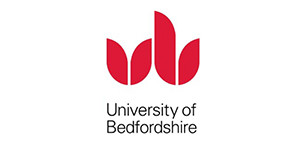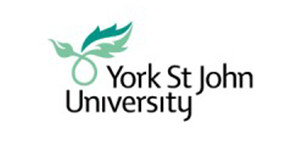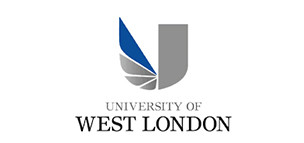Study In UK

The UK has been a popular destination for overseas education for a while now. A significant upswing has been in Nepalese students going to the UK for study and work in 2023, as it beckons a rich culture, a friendly learning environment, shorter courses, and post-study work opportunities.
The aspirations of international students to enroll in the education system in the UK are undeniable. From a supportive learning environment to post-study work opportunities, UK education is something to prepare for. Also, you can apply for an eligible Graduate Visa program after course completion to land your career in the UK too.
Let's connect with Bethesda to gain invaluable insights on your undergraduate, graduate, doctorate, and other educational plans for the UK. Get a chance to unlock UK-based study scholarships, grants, and student loans when exploring the vast array of educational options in the UK.
Why study in the UK?
1. International Accreditation
Visa processing in the UK requires preliminary entry requirements and offers a top-notch educational program that is internationally accredited. World-renowned universities, listed in the QS World Ranking 2024, offer diverse educational programs and research opportunities, so why wait?
2. Post-study work opportunities
The UK’s Graduate Route is an exciting opportunity for international students to study and work in the UK. As per its provisions, graduates can have an extended stay of up to 2 years upon graduation under this VISA scheme, while Ph.D. graduates can stay for 3 years.
You are not entitled to work on a specific job. This means that you can have multiple jobs at any skill level. Unlock post-study work opportunities by paying a one-off Visa application fee of £822. In addition to this, you need to pay £624 annually for the Immigration Health Surcharge, which will cost you.
3. Flexible and short-term courses
The UK is well known for its relatively shorter courses with built-in flexibility. Connect with ambitious, like-minded people and take the first steps towards making your academic pursuit worthy.
Language courses, professional development courses, IT courses, and creative arts courses are relatively short-term. These courses focus on the skill advancement of an individual and are relatively cost-effective.
4. Good value for money
The UK can offer value for money. Earn your graduate degree in 3 years and also avail of financial scholarships from NGOs, universities, and government agencies. The UK understands students' unique financial needs and supports fully or partially international students with significant reductions in their course fees.
5. Multi-cultural integrity
The UK has become more multicultural since the concept came into use in the 1960s. Diverse societies in the UK welcome international students to blend into the learning environment and even have an inclusive and enriching experience. Have a multicultural understanding and be part of international celebrations too.
6. Extensive public transportation
The UK has well-developed railway tracks across Britain and Northern Ireland, containing cities and towns. Also, local buses and urban commuter networks, coaches, and trams make it convenient to travel across the country.
The education system in the UK
The education system in the UK consists of primary education, secondary education, and high education. The education structure is like this,
1. Five stages
The early years of education are optional in the UK. Primary education consists of a key phase, where students grow, and consists of two key stages, focusing on numeracy, basic literacy, and social grooming.
Secondary education comes with a broad curriculum and core subjects like further math, English, science, and optional subjects. Further education can be chosen, either vocational, optional, or academic.
Vocational education can be an A-level qualification equivalent in other international countries. Besides, optional educational programs and academic ones like degrees, master's degrees, doctorates, and other qualifications are also entertained in the UK.
2. Compulsory Education
Primary education and secondary education are compulsory in the UK. Primary education is covered between ages 5 and 11, and secondary education is covered between ages 11 and 16/18 in England. In general, children from 5 to 16 years of age must be literate and enrolled in the education system in the UK.
3. Funding
When it comes to funding education, it is primarily publicly funded. Also, you can avail yourself of some private and state-funded independent schools in the UK. The globally recognized qualification places more emphasis on core skills like critical thinking, literacy, and numeracy. Also, the British educational system offers pathways to different academic pursuits.
How much does it cost to study in the UK?
The cost of studying in the UK may vary if you are an international student. They are expected to pay more than domestic students; hence, scholarship and financial aid options are also provided to make their studies effective in the UK.
Based on the chosen program, university, and level of study, the annual study cost in the UK may differ. Let's decode the general estimation of the study cost in the UK.
|
Level of study |
Cost of study |
|---|---|
|
Undergraduate |
£17,000 to £35,000 |
|
Postgraduate |
£12,000 to £30,000 |
Cost of Living in The UK: A Detailed Overview
Migrating to the UK under a study visa, we got you covered. Let us help you access the monthly living expenditure in the UK and plan your budget accordingly.
|
Living expenses in the UK (per person) |
Monthly expenditure (pounds) |
|---|---|
|
Groceries (self-cooking) |
£150 to £250 |
|
Occasional eating Out |
£15 to £35 per fine dining |
|
Public transport |
£50-£80 |
|
Rent (shared flat) |
£250-£400 |
|
Mobile phone |
£20-£30 |
|
Utilities |
£80-£120 |
The aforementioned data are just a general estimation; living costs get higher if you reside in major cities like London than in smaller or rural areas. Someone who eats out quite often has more food bills than someone who cooks at home. Also, public transportation is relatively expensive, so those walks or cycles can save money.
|
Types |
Amenities |
Monthly Budget in the UK |
|---|---|---|
|
Minimalistic Budget |
Self-cooking, accommodation in suburbs, limited transport |
£610-£1100 |
|
Moderate Budget |
comfortable accommodation, occasional eating out, and some entertainment |
£810-£1200 |
|
Significant Lifestyle |
regular dining out, frequent travel, larger apartment |
£1200+ |
Job Opportunities in The UK (as an International Student)
With a student visa in the UK, your working hour limitation is 20 hours per week during university term time. In the off-season or holidays, you are allowed to work more hours.
The national minimum wage rate for workers aged 21 to 24 is £9.18 per hour. For workers aged 18 to 20, the development rate is £6.83 per hour. And for workers above 25 years of age, the pay rate is currently £9.50 per hour. Higher-skilled workers earn more based on their demanding jobs.
For part-time job options, one can work in retail stores, selling groceries, electronics, books, and others at flexible hours. International students can make the most of the flexible working opportunities provided to part-time workers in restaurants, cafes, hotels, and the hospitality industry in general.
Data entry jobs can also be on your list, where companies pay an hourly rate to work remotely, for computer skills, data organizing, and others. So, what part-time jobs are you looking for in the UK?
Popular Career Paths in the UK
International students can grasp global networking opportunities post-graduation, in their preferred sectors. Depending on their qualifications, experience, and skills, they can make a good living in the UK. So, here are some popular paths decoded for the students,
Post-graduation you are allowed to have an extended stay in the UK either with the graduate route or under a Tier 2 General Visa. You can have a high-demand job in tech and engineering. Finance and business opportunities are seen While your research role and relevant qualifications help you have a good living standard in the UK.
Finance, technology, and jobs in higher cities have comparatively higher incomes. Also, with experience, you can be a deserving candidate for higher salaries. Creative industries like the art, design, and medical sectors also call for exciting partnership avenues if you are a pro at something you do.
The UK tourism industry also employs talents across the world in hotels, restaurants, travel agencies, event management, and more. But this is not the limit; the global financial hub of London looks for consultants and accounting experts. Research, engineering, English language teaching, and health care professionals are things that can just be overlooked.
Processing Steps for Study in the UK
1. Research and planning
The primary step before applying for study in the UK is primary research and planning about the education system in the UK. Before we begin with visa applications in the UK, decide on your desired level of study in the UK, field of study, and preferred location. And with the help of expert guidance like Bethesda Consultancy, choose a university program that suits your interests.
Research does not end here only; consider estimated education costs, tuition fees, living expenses, and travel costs, and see if there is any funding like scholarships. Accordingly, check eligibility requirements, proof of funds, and the English language proficiency test, and choose an appropriate visa.
2. Application process
The application process to study and enroll in colleges and universities in the UK can get daunting. So, research well, and first of all, apply directly to the shortlisted university according to their standing instructions, guidelines, and application procedures.
Ensure that all the required documents, like transcripts, letters of recommendation, and personal statements, are attached. Secure Confirmation of Acceptance of Studies (CAS), and now apply for a visa from the UK government website with CAS, financial, and other documentation proof. Pay the applicable visa fees, schedule biometrics, and wait for the visa review.
3. Pre-departure arrangements
Studying in the UK and unprepared for suitable housing options, location, and pre-departure needs. Worry not, as Bethesda Consultancy helps you book well in advance regarding such options. Arrange all your travel tickets and healthcare insurance for the UK educational plan. By providing valuable insights on pre-departure terms in adherence to the university program and British Council. On top of that, we make sure your travel is convenient and fulfilling.
4. Arrival and Settling in
Most of us might just ignore the steps one needs to take after arriving in the UK. Here are some points that new entrants in the UK might find helpful. Let’s have a look,
- Register with local police upon arrival
- Set up a bank account as per the UK rules for finance options
- Explore surroundings, navigate cities, and network with fellow students
IELTS scores are considered relevant for most of the universities in the UK. However, some universities are also considerate regarding other proofs of English proficiency, like TOEFL, PTE Academic, or Cambridge English Advanced.
The best city for students is considered to be one with a safe experience. London, home to several world-renowned universities, Oxford, with its historical colleges, and Edinburgh are the best choices for a study point of view. For lively scenes and nightlife, Manchester, Bristol, Nottingham and affordable cities like Aberdeen., Belfast, Coventry, and Bath for historical significance are some to consider.
The study hours in the UK may vary, depending on the course program one enrolls in. International students are expected to study a maximum of 35 hours per week, while some subjects offer only eight hours of study per week.



